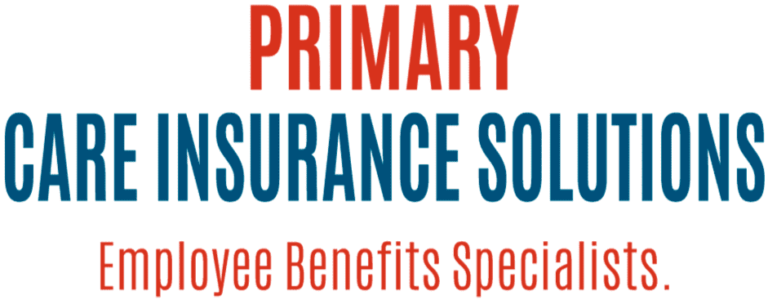Health insurance costs are one of the greatest cost demands businesses deal with. The challenge to maintain a balance between excellent healthcare options for your employees and the costs you bare is an uphill battle.
Each year, healthcare insurance providers adjust their rates, and with those rate adjustments comes an increase in your bill. Small to medium-sized companies tend to accept these new rates without question, mistakenly believing they have no other options. However, there is a way to reduce costs. Many believe the answer lies in a negotiated rate health insurance plan.
But, what it is a negotiated rate? How does it differ from referenced based pricing? What is the best way to approach it and is it truly the only way to get a good rate?
In today’s post, we’ll answer those questions.
What is the Negotiated Rate?
A negotiated rate is also called an adjusted rate. This rate is the final rate that your insurer contracts to pay out for procedures and any other services a doctor will provide including lab, medical facility costs, and pharmacy covers.
The amount that your company’s insurance provider pays for each of these services is the negotiated rated. Health insurance companies and hospital networks (along with other providers) have negotiated these rates well in advance. However, plans do differ, and the final amount that your employees will be responsible for, and in some cases employers, is dependent upon the deductible and the cost of those services.
This means that a $500 rate for something like a CT scan could actually be lower or higher depending on your health insurance provider, not necessarily because of the hospital your employees are treated at. In many cases, this rate is lower than what an uninsured person would pay.
The advantage for provider networks is a broader range of customers. Obviously, your employees are more likely to seek out care through their network since they get the coverage your insurance policy provides. This provides those networks with more business.
When it comes to leverage, larger companies possess far greater negotiation leverage because they have a greater number of customers. This means that the larger the health insurance company, typically, the better the negotiated rate.
The trouble with the negotiated rate, or the adjusted rate, is figuring out precisely how much that is. It can almost be impossible to see exactly how much you are paying per service since those negotiated rates differ from doctor to doctor and network to network. Additionally, there are multiple factors involved with negotiated rate health insurance that contribute to a lack of transparency.
Ultimately, the negotiated rate or the adjusted rate comes down to the final rate you pay for health care services, how much your insurance provider pays, and the costs given to your employees.
Referenced Based Pricing
The objective for businesses and employers when it comes to health insurance is to decrease their expenses on employee perks while maintaining the same level of benefits. Employers utilize referenced-based pricing as a means to lower their spending on claims.
Referenced based pricing is different from negotiated rate insurance prices in that it lowers fees from the hospital and provider by taking a modern approach to traditional healthcare models. The reality is, the prices paid for health care services are artificially inflated to begin with. The healthcare plan is designed to negotiate a “discount” of sorts, through the provider’s network.
With Referenced Based Pricing, however, employers can control claims costs with greater accuracy by beginning negotiations with the lowest possible prices. These claims include expensive surgeries, hospital stays, and treatment options that are traditionally more expensive, but they do vary in price.
Within this pricing model, insurance providers set their own pre-negotiated discounts for each service the hospital or network offers. This creates the price you’ll have to pay.
Medicare Negotiated Prices
Another possibility for cost reduction is through the utilization of Medicare’s negotiated prices. At Primary Care Insurance Solutions, we frequently employ referenced based pricing via Medicare in order to obtain a modified rate that is advantageous to both employers and their workers.
In recent months and years, the debate over whether or not Medicare should be allowed to negotiate high drug costs. Bringing down the costs of prescription medications would take out a large chunk of the health care costs we’re seeing skyrocket across the country.
According to the poll from the Kaiser Family Foundation, most Americans would support efforts to allow Medicare to negotiate lower prescription drug costs. Negotiating directly with pharmaceutical companies would no doubt lower the costs for medical care, especially when so much of it is tied up in paying for medications.
However, the other aspects of medical care such as expensive hospital stays, treatments, and more, keep monthly rates high and often leave your employees without the care they need. But this is part of the reason that the negotiated rate, even when it comes to Medicare, isn’t always the best option to reduce your costs.
In fact, the negotiated rates for your insurance are nearly trade secrets. To get access to the actual amount being paid for the service provided, you often have to wait for statements in the mail. Understanding the true cost of healthcare requires a deeper level of understanding on how insurance works.
As consultants, we strive to provide access to transparent information, including information on your negotiated rate health insurance coverage. And often the reality is, your negotiated rate can end up costing your company more than it has to.
When the Non-Negotiated Rate is Lower
The biggest surprise about the negotiated rate is that health insurance companies go out of their way to not pay the agreed upon rate. This is also often the reason that prices increase because providers know that insurance companies are going to do everything they can to avoid paying that agreed upon cost.
For consumers, this means paying more than they should have. When you rely solely on insurance companies to negotiate rates on your behalf, you could be trusting one of the most delicate facets of your healthcare in the wrong hands. It is troubling that many believe that the negotiated rate is in a symbiotic relationship with the most affordable rate. The reality is, this negotiated rate could be costing you more money than you realize.
What This Means for You
The negotiated rate for health insurance is far from your best friend. It is based on claims data that varies each and every single year. Additionally, it is not always reliable. Actionable data is often missing from the structure of the negotiated rate and how it relates to the consumer. What you need to know about the adjusted rate is simply that—it isn’t the best way to reduce healthcare costs.
We encourage providers to stop looking to approximations and ask providers to show us exactly what discounted bundle prices they have for self-insured patients. That process has served our clients well.
So, the next time you see the words “negotiated rate” remember it is far from synonymous with affordable or the cheapest rate. And when you have questions about the best way to get a good rate, contact Primary Care Insurance Solutions.
Frequently Asked Questions
How do businesses grapple with the challenge of balancing healthcare options for employees and controlling costs?
Businesses often struggle to strike a balance between offering excellent healthcare options to employees while managing costs effectively. The annual adjustments in healthcare insurance rates can be a significant financial burden.
What is a negotiated rate in health insurance?
A negotiated rate, also known as an adjusted rate, refers to the final amount that an insurance provider agrees to pay for medical procedures and services. These rates are pre-determined through negotiations between the insurance company and healthcare providers.
How does a negotiated rate differ from referenced based pricing?
Negotiated rates are set between insurance providers and healthcare facilities in advance. In contrast, referenced based pricing involves starting negotiations from the lowest possible prices for medical services, aiming to reduce costs for employers
What is the significance of referenced based pricing in healthcare?
Referenced based pricing is a strategy that empowers employers to control claims costs more accurately by negotiating prices with healthcare providers from the outset. This approach challenges the artificially inflated prices commonly associated with healthcare services.
How can Medicare negotiated prices be utilized to reduce costs?
Employing referenced based pricing through Medicare negotiated prices can be advantageous for employers and employees. Negotiating lower prescription drug costs directly with pharmaceutical companies could significantly decrease overall healthcare expenses.
Is the negotiated rate always the best option to reduce healthcare costs?
The negotiated rate might not always be the most effective way to reduce healthcare costs. Insurance companies sometimes avoid paying the agreed-upon rates, leading to higher costs for consumers. Relying solely on negotiated rates might not guarantee the most affordable healthcare options.
What challenges are associated with the negotiated rate in health insurance?
The negotiated rate can lack transparency and reliability due to varying claims data each year. Insurance companies might not always uphold agreed-upon rates, leading to potential cost increases. Consumers need to be cautious when assuming that negotiated rates equate to the most affordable options.
How can businesses navigate the complexities of negotiated rates and healthcare costs?
Businesses should question approximations and request healthcare providers to provide transparent information about discounted bundle prices for self-insured patients. Relying solely on negotiated rates might not lead to the most cost-effective healthcare solutions.






